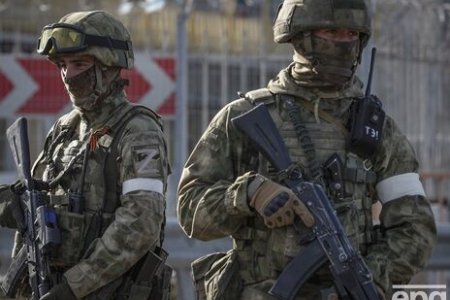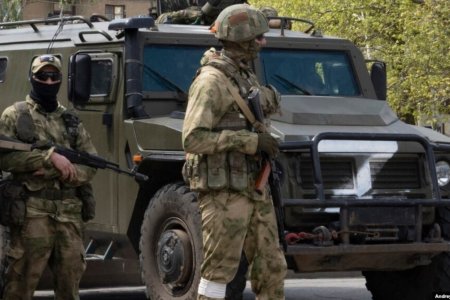
Ukraine has initiated a war crimes investigation into the killing of four Ukrainian prisoners of war after they were seized by Russian military near Selydove (Donetsk oblast). This is the latest of a rapidly increasing number of such atrocities which Ukraine is not alone as viewing as Russian deliberate policy. Russia’s systematic torture, killings and illegal ‘trials’ of Ukrainian prisoners of war are among countless violations of international law documented by both the International Criminal Court (ICC) and the OHCHR’s Monitoring Mission in Ukraine. That alone makes it baffling that the United Nations Secretary General António Guterres should have seen fit to attend the latest BRICS summit in the Russian city of Kazan. By doing so, he has effectively made himself the guest of Russian leader Vladimir Putin, against whom there is an ICC arrest warrant out.
Latest killings
Although the second of two such war crimes reported just this week, the killing of the four POWs is believed to have taken place on 6 October. According to the Prosecutor General’s Office, four soldiers from Ukraine’s National Guard were stormed by Russian invading forces at around 13.00 on 6 October. The Ukrainian defenders were taken prisoner, with the Russians videoing the interrogation of the unarmed men. The Ukrainian Armed Forces succeeded in retaking the position the following day. They found the bodies of all four Ukrainian prisoners of war, who had clearly been killed in cold blood after the Russians interrogated them.
As Ukraine has had to repeat on an almost weekly basis over the past year, any killing of unarmed prisoners of war is in flagrant violation of the Geneva Convention relative to the Treatment of Prisoners of War and constitutes a grave international crime.
The same is true of the killing of two other Ukrainian prisoners of war on 18 October. The Donetsk Regional Prosecutor’s Office reported on 21 October that the two Ukrainian defenders had been seized during a Russian attack on Ukrainian Armed Forces positions in the Pokrovsk raion. The Russians had forced the Ukrainian prisoners of war to the ground, facedown. Pressing them down with their feet, the Russians had held them in such a position for some time, before shooting them dead.
At the beginning of October, the Russians were reported to have killed 16 Ukrainian prisoners of war in the Pokrovsk raion (Donetsk oblast). Later, on 13 October, it was learned that nine Ukrainian prisoners of war were killed after being captured in Kursk oblast.

After the killings reported on 18 October, Dmytro Lubinets, Ukraine’s Human Rights Ombudsperson, spoke of over 100 victims. That figure was without knowing of the four Ukrainian defenders murdered on 6 October. Any such figures can, in any case, only be approximate, with new crimes coming to light all the time, and the number sharply escalating over the last year.
Ukraine’s Military Intelligence earlier reported having intercepted conversations in which a Russian commander, known as ‘Turk’, had ordered a subordinate to kill Ukrainian POWs. Both Ukraine’s investigators and the authoritative Institute for the Study of War [ISW] have pointed to the fact that such killings are not isolated crimes and are occurring in all areas. While Ukraine’s Prosecutor General has spoken of deliberate Russian policy and of the killings being of a systemic nature, ISW recently reported that “Russian commanders are likely condoning, encouraging, or directly ordering the execution of Ukrainian POWs.”
More harrowing details here about Russian crimes documented in the latest UN Report on the Treatment of Prisoners of War and Update on the Human Rights Situation in Ukraine, as well as about the mounting death toll from Russia’s illegal imprisonment of Ukrainian civilians and political prisoners, and its torture and executions of Ukrainian prisoners of war.
Photo shots of Guterres’ visit to Russia have been widely circulated on all Russian propaganda media, as well, doubtless, as Russia’s significant disinformation channels in other countries. Even if Guterres does manage to slip in a word or two (perhaps over dinner?) to Putin about the ‘need for peace in Ukraine’, it will not be that which the propaganda channels will record.
On 24 October, Ukrainian human rights and other civic organizations issued a joint statement over the UN Secretary-General’s scheduled meeting that day with Putin. They condemned the UN Secretary-General’s visit to Russia and planned meeting with Putin, who has been under an ICC arrest warrant since 17 March 2023. Guterres’ meeting with Putin “not only undermines the authority of the ICC and the inviolability of international justice but also calls into question the values of the UN.”
The NGOs recalled that guidelines were adopted in 2013 to regulate possible meetings of UN Secretariat staff with individuals subject to arrest warrants issued by the International Criminal Court. These stated clear that any contacts with individuals subject to such arrest warrants should be limited to those which are strictly required for carrying out essential United Nations mandated activities. Furthermore, the presence of United Nations officials at any ceremonial or similar occasion that is attended by any such person should be avoided. Standard courtesy calls should not be made.
There is nothing to suggest that the exception applied, namely that a meeting was “imperative for the performance of essential United Nations mandated activities.” Whatever expressions of deep concern, or even stern reprimands, that Guterres may deliver to Putin behind closed doors, his visit to the BRICS gathering in Russia is hard not to view as a ‘courtesy call’ sending a disastrous message of disregard for the International Criminal Court and the victims of Russia’s war of aggression against Ukraine.



